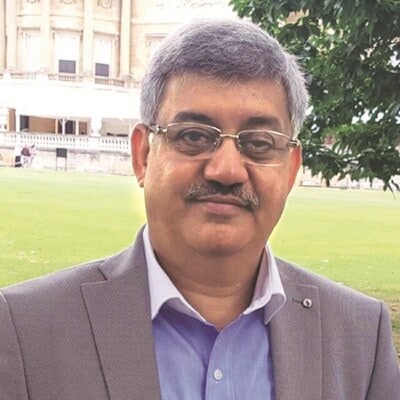India’s strong growth leading to trend of ‘reverse flipping’ for startups
He was speaking at an event in Singapore organised by the commerce ministry to showcase various investment opportunities in India.
India’s strong growth is leading to a trend of ‘reverse flipping’ as domestic startups that once used to move abroad for capital access and tax benefits are now returning home, a top government official has said.
Commerce Secretary Sunil Barthwal also said that the digital economy along with emerging technologies like AI and the rise of data centres were key to future Indian growth.
He was speaking at an event in Singapore organised by the commerce ministry to showcase various investment opportunities in India.
It was organised on the sidelines of the inaugural Indo-Pacific Economic Framework for Prosperity (IPEF) Clean Economy Investor Forum in Singapore.
Barthwal stressed how India’s growth rate is nearly double that of other emerging market economies.
“He remarked on how this strong growth is also leading to a trend of ‘reverse flipping’, where Indian startups that once moved abroad for capital access and tax benefits are now returning home,” the ministry said in a statement on Friday.
India’s economy grew by 8.2 per cent in the fiscal year that ended in March 2024, cementing the country’s position as the fastest-growing major economy in the world.
The country has over one lakh government-recognised startups.
The meeting attracted more than 60 participants, including global investors from the US, Singapore, Japan, Australia, Korea, and other countries, as well as India’s private sector and government officials.
The event brought together investors and financial institutions from IPEF Member countries like those of Temasek, Global Infrastructure Partners, GuarantCo, Private Infrastructure Development Group (PIDG), Goldman Sachs, I Squared Capital, Mizuho Bank Ltd, Advantage Partners, Nomura, DBS Bank and Citi Bank.
The Indo-Pacific Economic Framework for Prosperity (IPEF) was launched in May 2022 and currently includes 14 partners – Australia, Brunei Darussalam, Fiji, India, Indonesia, Japan, the Republic of Korea, Malaysia, New Zealand, Philippines, Singapore, Thailand, the US and Vietnam.
(Only the headline and picture of this report may have been reworked by the Business Standard staff; the rest of the content is auto-generated from a syndicated feed.)
First Published: Jun 07 2024 | 11:35 PM IST
